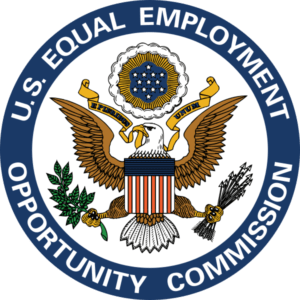In the wake of the horrific Paris and San Bernadino attacks, a fair amount of ugly anti-Muslim rhetoric, and worse, quickly permeated some segments of the nation. Concerned that this backlash would unduly spill over into the workplace, on December 23, 2015, the U.S. Equal Employment Opportunity Commission issued two resource documents. Both are designed to remind employers and employees alike that Americans of the Muslim faith or Middle Eastern national origin are entitled to the same freedom from employment discrimination as everyone else.

Anti-muslim workplace discrimination might take various forms
Both federal and Ohio law outlaw discrimination in employment on the basis of religion and national origin. The EEOC helps to administer the federal law, Title VII of the Civil Rights Act of 1964, 42 U.S.C. §2000e, et seq. These laws apply to all aspects of the employment relationship, including hiring, work assignments, pay, discipline, and termination. The laws also require employers to make reasonable accommodations of employee religious practices where doing so would not pose an undue hardship.
To aid employers and employees in adherence to the employment discrimination laws, the recent EEOC resource documents contain a series of useful examples about the ways anti-Muslim discrimination might arise in the workplace. They also inform employers what they must do (or not do) to avoid breaking the law and depriving employees of their rights.
The first example raises the question whether an employer can use its dress code—or fears about customer preferences and biases—to stop employees from wearing religious attire. In the hypothetical posited by the EEOC, the employer is concerned that customers will be uncomfortable with a retail store employee wearing a religious headscarf known as a hijab. As the EEOC explains, federal employment laws would prohibit refusing to hire the employee because of her religious attire. Doing so would be tantamount to refusing to hire her because of her religion. This was the scenario presented in U.S. Equal Employment Opportunity Commission v. Abercrombie & Fitch Stores, Inc., a case decided by the Supreme Court last June. Our coverage of the case can be found here.
The EEOC also addressed how to handle instances of harassment towards Muslim employees. In the example given, a Muslim employee complains to his manager that a co-worker regularly calls him names like “the local terrorist,” and “ISIS.” As with other forms of unlawful workplace harassment, the EEOC explains that when managers and supervisors become aware of unwelcome harassment based on religion or national origin, they are required to take prompt steps to stop and correct the harassing behavior. Employers that fail to do so, thus permitting harassment to continue, can become liable for the hostile environment created by their employees. That is true even if the employer itself harbors no overt animus towards Muslim employees.
While the EEOC gives several other useful examples, the final one I’ll focus on involves religious accommodations. The EEOC hypothetical asks whether an employer must allow time off from work to permit a devout Muslim employee to pray for a short period at a local mosque on Friday afternoons. The answer is maybe.
As I mentioned above, Title VII (and Ohio law) require employers to make reasonable accommodations to workplace rules or policies in order to permit employees to practice their religions, as long as the accommodation would not pose an undue burden on the employer. Whether an accommodation will be an undue burden depends on the specific facts of each situation, but necessarily involves consideration of the religious practice at issue, the relevant workplace policy, as well as any administrative or financial costs of granting an exception from it.
Whether the employer can reasonably accommodate the time off for Friday prayers will depend on the nature of the circumstances surrounding the employee’s job. In some cases, the accommodation will pose an undue burden to the employer, and in some cases it will not. The same would be true for a religious accommodation sought by a Christian employee, a Jewish employee, or an employee of any other religion. Although each situation is unique, and requires its own analysis, the underlying principle is the ironclad: employees of all religions are entitled to be treated equally, and to be free from discrimination in the workplace.
Why we must shun employment discrimination based on religion or national origin
In a statement accompanying the recent resource documents, EEOC Chair Jenny Yang eloquently explained why we must all remain vigilant to the issue of religious discrimination in the workplace: “America was founded on the principle of religious freedom. . . . When people come to work and are unfairly harassed or otherwise targeted based on their religion or national origin, it undermines our shared and longstanding values of tolerance and equality for all.”
Even in times when passions are high and the rhetoric fierce, most employers will not tolerate bigotry in the workplace towards Muslim employees and those of Middle Eastern descent. But it doesn’t take an employment law attorney to know that some people will use fear and bigotry to discriminate against those who are different, despite America’s bedrock founding principle of religious tolerance.
If you have suffered religious discrimination or national origin discrimination in the workplace, the Ohio employment law attorneys at Bolek Besser Glesius LLC are committed to equality in the workplace. We’re here to help. Call us today.


Leave a Reply